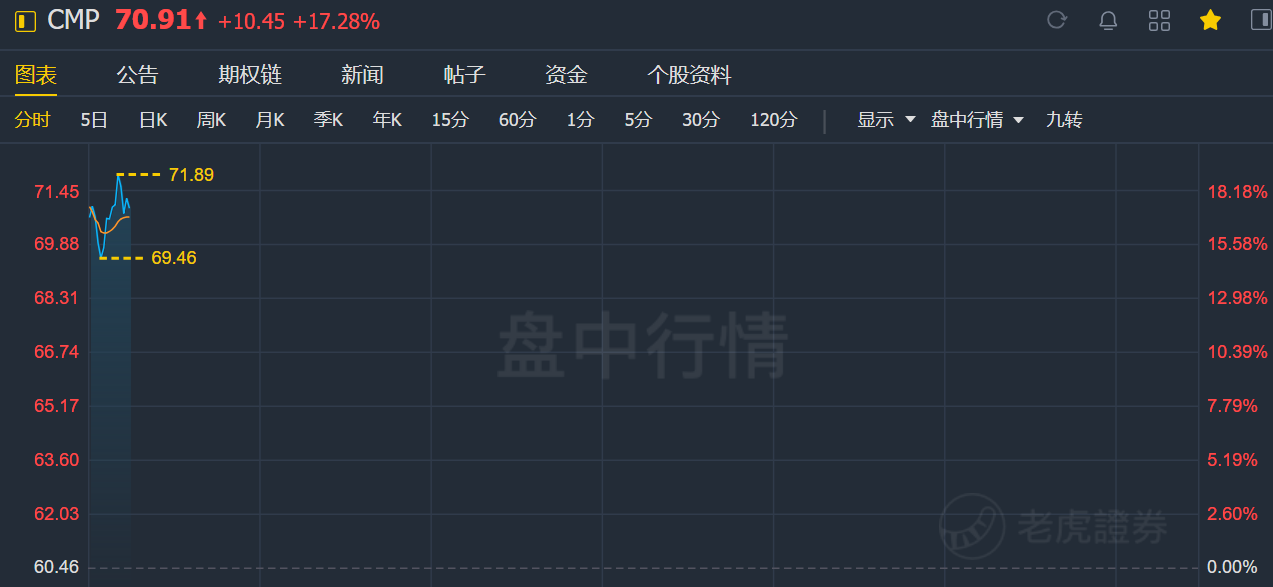Compass Minerals’ shares rises 17% in early trading on Wednesday after the mineral producer said it had found about 2.4 million metric tons of lithium carbonate equivalent (LCE) at its solar evaporation site in Utah.
The announcement, released after market hours on Tuesday, comes as demand and prices for the battery metal has climbed due to aggressive electric vehicle production plans by automakers.
The company, which produces salt, plant nutrients and magnesium chloride, said it had identified an indicated lithium resource within the ambient brine of the Great Salt Lake.
A large part of lithium is extracted from brine or seawater.
Electric vehicle batteries can use lithium carbonate or lithium hydroxide, but the industry typically uses lithium carbonate equivalent (LCE) which contains both.
The company said it was evaluating the means of extracting the lithium, which accumulates through its current solar evaporation process and can be accessed through its existing leases and permits, adding that it was in late-stage talks to select a direct lithium extraction technology provider.
Compass said an initial assessment estimated total combined indicated and inferred lithium resources of about 127,000 metric tons of LCE at its active Ogden site. The assessment also identified an additional indicated lithium resource of about 2.32 million metric tons of LCE.
The company said it was targeting an annual production capacity in the range of about 20,000 to 25,000 metric tons of LCE, with up to 65% of the future production derived from brine that has already been extracted from the Great Salt Lake.



